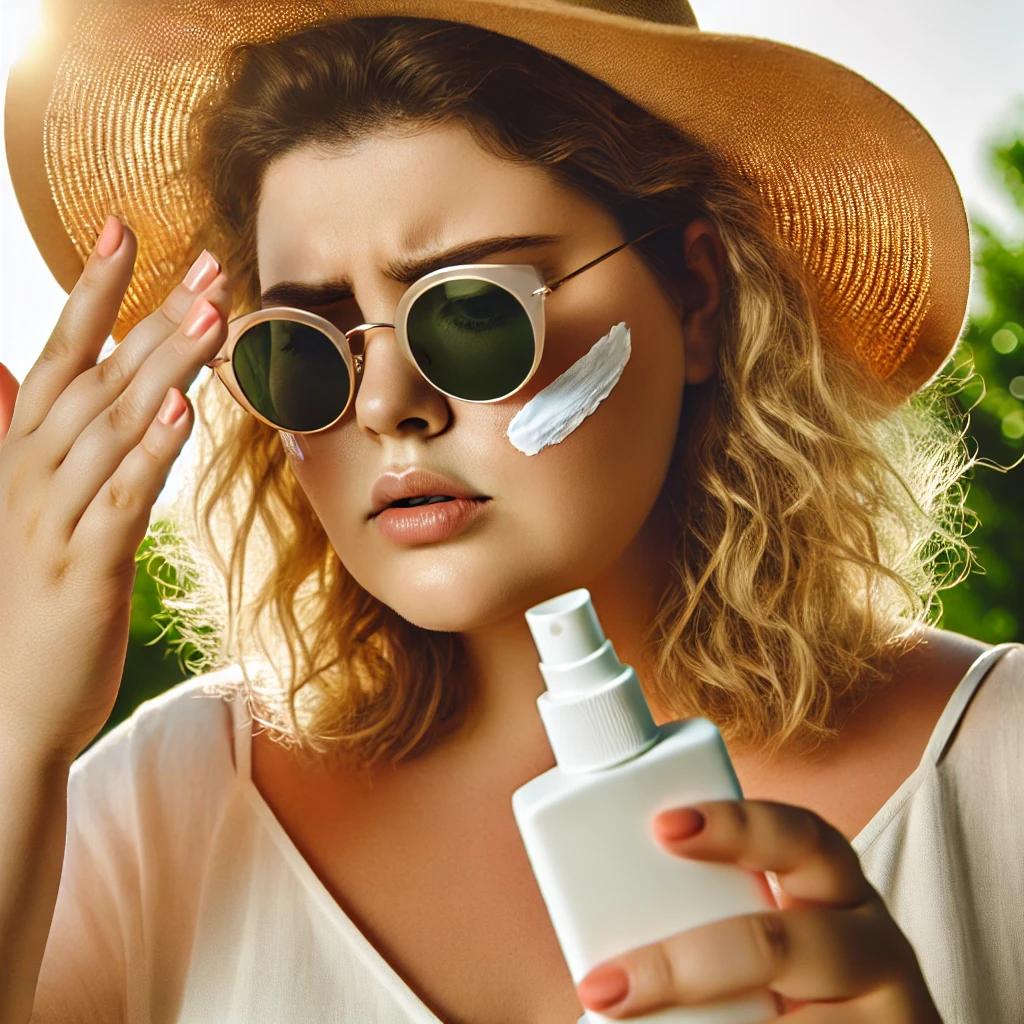Summer is here, and it’s time to enjoy the sun! But have you ever thought about how to keep your skin safe from the sun’s harmful rays? I’m here to explain what you need to know about sunscreen. Let’s find out who needs it, what it’s made of, when and where to use it, and why it’s so important for your skin.

Quick takes
- Sunscreen is important for everyone, helping prevent skin cancer and premature aging.
- Reapply every two hours and after swimming or sweating.
- Use a broad-spectrum sunscreen with at least SPF 30.
- Don’t forget areas like your feet, neck, and lips.
Why use sunscreen?
Protecting your skin from the sun is important to help prevent skin cancer, number one. Sunscreen also helps prevent early aging of your skin. That includes things like wrinkles, sagging skin, and age spots. Also, I don’t want you experiencing the pain of a nasty sunburn, and the gross dead skin peeling you get a few days later. Sunscreen will help stop that from happening, so long as you remember to reapply every few hours.
Sunscreen is one of the best ways to protect your skin from UV damage
Dr. Jane Smith, dermatologist
Who needs sunscreen?
Sunscreen is for everyone. Whether you have light skin that burns easily or darker skin that rarely burns, you need sunscreen, and I want you to wear it. Kids, teens, and adults all benefit from using it, so don’t think you are somehow too old and tough to need sunscreen. Even if you don’t burn, your skin can still get damaged by UV rays.
When should you wear sunscreen?

Put on sunscreen every day, even if it’s cloudy or wintertime. Also, I need you to reapply sunscreen every two or three hours, especially after swimming or sweating. This might seem annoying, but after a few hours the first batch of sunscreen has lost its ability to protect you, and some of it has washed awaay with sweat. Stay beautiful. Reapply!
Where on your body should you wear sunscreen?
My advice is to apply sunscreen to any uncovered areas of your body. If I’m wearing a long sleeve shirt, for example, I usually don’t wear sunscreen on areas the shirt covers. Be sure the tops of your feet, back of your neck, and maybe even the part in your hair are protected from the sun. Personally, I even wear a lip balm with SPF, to keep my lips juicy and smooth.
Let me point out, I use a different suncreen on my face and neck than what I use on the rest of my body. Our face skin, in particular, is thin and sensitive. I have some favorite sunscreens I like to use on my face because of their texture, smell, and ability to blend into the skin so makeup can be applied. Then for the rest of my uncovered body areas I use a more generic sunscreen, that’s usually less expensive, too.
- My choice for face and neck:
- My choice for body:
What is sunscreen made of?
Sunscreen has ingredients that protect your skin by either absorbing, reflecting, or scattering sunlight. There are two main types, and some we call “hybrids” that use both types in one product.
- Chemical Sunscreens: These have ingredients like oxybenzone and avobenzone. They absorb UV rays and turn them into heat, which is then released from the skin.
- Physical Sunscreens: These have mineral ingredients like zinc oxide and titanium dioxide. They sit on top of the skin and physically block UV rays.
FAQs about sunscreen
- What SPF should I use daily?
- Use at least SPF 30.
- Can I use last year’s sunscreen?
- Check the expiration date. Expired sunscreen may not work well, because heat and age make the active ingredients lose it’s effectiveness.
- Do I need sunscreen if my makeup has SPF?
- Yes, layer sunscreen under your makeup. Your skin should be able to absorb the sunscreen, and you put makeup on top of that.
- Is sunscreen safe for babies?
- For babies under six months, keep them out of direct sunlight and use protective clothing. For older babies, choose a gentle sunscreen.
- Can I use the same sunscreen for my face and body?
- Yes, but face sunscreens are usually less greasy and less likely to cause breakouts. My favorite face sunscreen also smells gently of melons, instead of smelling like a lifeguard’s face.
- Does higher SPF mean better protection?
- Higher SPF offers more protection, but no sunscreen blocks 100% of UV rays. SPF 30 blocks about 97% of UVB rays.
- How much sunscreen should I apply?
- Use about one ounce to cover your whole body. I want you to be able to just feel the sunscreen on your skin, but not have a thick layer of goo.
- Can I get enough Vitamin D if I always wear sunscreen?
- When you apply sunscreen properly, it can significantly reduce the amount of UVB radiation that reaches your skin, thereby reducing vitamin D production. You can get Vitamin D from food and supplements. There is also something to be said for spending a moderate amount of time getting a controlled amount of sunlight.
Let’s wrap it up
Using sunscreen is a simple but powerful way to take care of your skin. It’s about more than avoiding sunburn—it’s about keeping your skin healthy for the future. Make sunscreen a daily habit, and encourage your friends and family to do the same. Your skin will thank you!
More love from Girl Friday
- Shield Your skin: The Ultimate Guide To Sun Protection
- The Truth About Sunscreen Moisturizers: Girl Friday’s Skincare Discovery


Leave a Reply